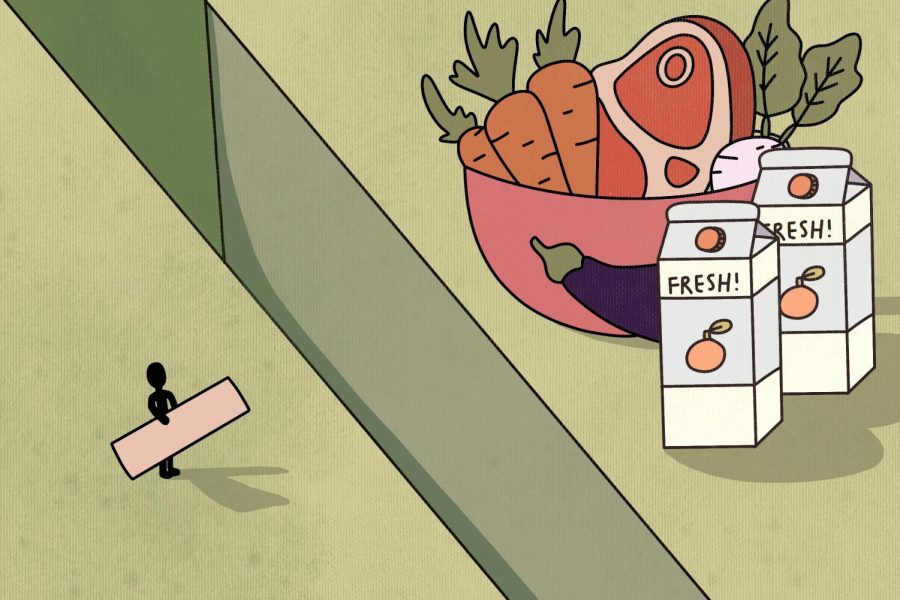ETHS senior Jacob Brodsky tackles food inaccessibility with urban agriculture survey
Despite initiatives to increase food accessibility in Evanston, some residents still lack access to affordable, fresh food.
April 14, 2021
Evanston Township High School senior Jacob Brodsky is surveying residents on the implementation of urban agriculture throughout the city.
Brodsky said the survey will inform a proposal he plans to make to city officials detailing how to expand access to healthy foods in Evanston. According to data collected in 2015 by the U.S. Department of Agriculture, residents in four of the 18 census tracts in the 1st, 5th, 7th and 8th Wards in Evanston have to travel more than half a mile to get to a supermarket.
Ald. Robin Rue Simmons (5th) said inaccessibility to healthy food negatively impacts residents’ health.
“Residents are maintaining their diets based on food access that we have here in the neighborhoods, which is packaged goods,” Rue Simmons said. “There’s definitely an impact on our overall health due to nutrition.”
Brodsky’s survey, something he created for an independent study class at school, asks residents for their feelings toward increasing urban agriculture. It asks for potential benefits, challenges that may arise and how food should be distributed. Brodsky said he hopes to use the feedback to offer city officials recommendations on using urban agriculture to increase fresh food accessibility in Evanston.
“There’s definitely space that can be used in Evanston for (community plots),” Brodsky said. “Space is a problem for some people, and (opening up plots) would allow them to grow food.”
Some local food pantries provide healthy food and produce, including the Evanston Vineyard Food Pantry located in the 8th Ward.
With higher rates of unemployment and financial struggles due to the pandemic, pantry manager Lisa Haskin said she has seen an increase in people coming to the food pantry. Haskin said the pantry serves up to 200 residents each week.
The Greater Chicago Food Depository provides the pantry with meat, dairy items and produce to offer residents.
“In areas that have these food deserts, that means they don’t have grocery stores close by, or the only thing they do have is a convenience store where there’s junk food,” Haskin said. “The goal was to get people good, nutritious food.”
Evanston Fight for Black Lives also installed a community fridge outside of the Childcare Network of Evanston building on Dodge Avenue, where residents can access foods left by other community members.
Rue Simmons said 5th Ward residents lack a local supermarket, and instead have to turn to convenience stores to buy groceries and food. That leaves many resorting to packaged foods, a problem she said residents in most other areas of Evanston do not face.
Despite efforts to build a freight farm in the 5th Ward and get more meat and produce at the local Walgreens, Rue Simmons said the area still needs more accessible options for residents to get healthy foods.
“The 5th Ward has historically been disenfranchised, and lacks important community and neighborhood amenities that all other neighborhoods in Evanston have,” Rue Simmons said. “That includes access to healthy foods.”
Rue Simmons said having more community gardens could make an impact in areas like the 5th Ward with few supermarkets.
“I would love to see future initiatives that are intentionally harvesting the produce, and getting them to the families that need them most,” Rue Simmons said.
Email: katrinapham2024@u.northwestern.edu
Twitter: @KatrinaPham_
Related Stories:
— Lasagna Love Mamas and Papas address food insecurity, deliver home-cooked meals
— Evanston Community Foundation announces grants to help address homelessness, food security and mental health
— Opera Projects for University Singers releases first-ever audiobook to raise awareness around food insecurity



